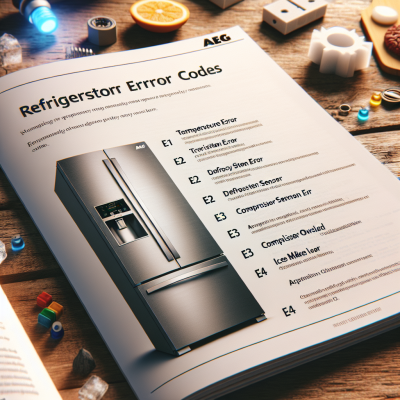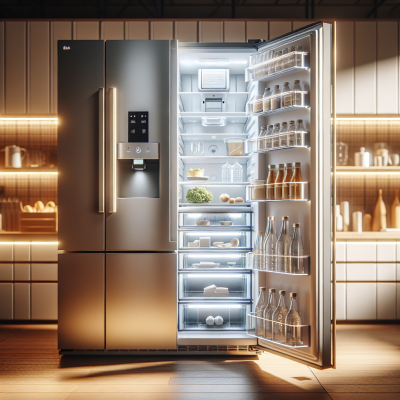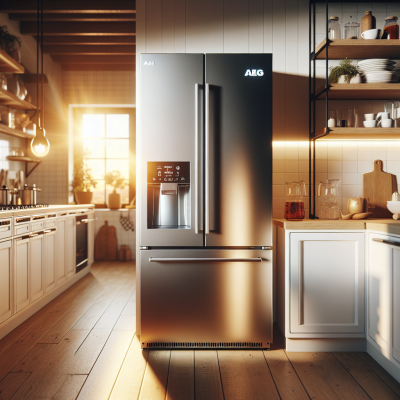Fast & Reliable Goodman Mfg Refrigerator Repairs - Call Now! |
Troubleshooting
Refrigerator Not Cooling
A refrigerator not cooling can be frustrating and possibly lead to food spoilage. To troubleshoot this issue, begin by checking the temperature settings. Ensure the thermostat is set to the appropriate cooling level that matches your storage needs. If the settings are correct, inspect the condenser coils located either at the back or underneath your refrigerator. These coils can accumulate dust and debris over time, diminishing cooling efficiency. Clean the coils with a vacuum or a coil brush for improved performance.
Next, ensure that the refrigerator door seals are functioning properly. Gaps in the seals can let warm air in, counteracting cooling efforts. Perform a simple seal test by closing the door on a piece of paper or a dollar bill – if it slips out easily, the seals might need replacement.
Ice Maker Not Producing Ice
If your refrigerator's ice maker is not producing ice, it is crucial to confirm that it is securely connected to the water supply. Check the water line for kinks or obstructions, and ensure the water valve is turned on. The ice maker should also be set to the on position.
If these elements are intact, try resetting the ice maker. Most models have a reset button – consult your specific model’s manual for guidance. Verify the freezer temperature is at the optimal level, typically around 0°F (-18°C), as higher temperatures can impede ice formation.
Unusual Noises
Unusual noises from your refrigerator can be concerning, but not all sounds indicate a problem. Identify the type of noise to determine if action is needed.
- Buzzing or humming often comes from the compressor and is usually normal.
- Rattling may indicate loose parts or items stored on top of your refrigerator. Secure any loose parts or remove items resting on the appliance.
- Clicking sounds can be caused by the defrost timer or the start relay. If these sounds are frequent, a component might be failing, and it may be time to contact a professional.
Water Leaks
Water leaks can arise from multiple areas of a refrigerator. Firstly, inspect the water line and connections for leaks or blockages. Tighten any loose connections and replace damaged tubing.
Another common cause is a clogged defrost drain, which can be cleared using warm water and gentle probing with a pipe cleaner. Additionally, ensure the drip pan at the bottom of your refrigerator is not overflowing and is correctly positioned.
Frost Build-Up
Frost accumulation in a freezer is often due to warm, moist air entering. Check the door seals for integrity. Regularly defrost your refrigerator if it is a manual defrost model, following the manufacturer's guidelines.
If equipped with a self-defrosting system, and frost buildup persists, the defrost timer, heater, or thermostat might be malfunctioning, requiring professional inspection.
Door Seal Problems
Door seals play a crucial role in maintaining an airtight environment within the refrigerator. Over time, seals can wear down or become dirty, reducing their effectiveness. Clean the seals regularly with a mild detergent and warm water to remove any buildup. If the seal is damaged or still fails the paper test, replacement is necessary to ensure proper performance and energy efficiency.
Odor Removal Tips
Persistent odors in refrigerators can be managed effectively. Begin by removing expired or spoiled food. Wipe down all interior surfaces with a mixture of baking soda and warm water, which helps neutralize odors. Placing an open box of baking soda or activated charcoal inside can further absorb unwanted smells.
For lingering odors, consider using a vinegar or lemon-based solution for cleaning, as they are both natural deodorizers.
Frequent Power Cycling
Frequent power cycling, where the refrigerator turns on and off often, can stem from improper thermostat settings or a faulty compressor. Ensure your refrigerator is set to moderate cooling and is not placed near heat sources, such as ovens or windows.
Inspect and clean the condenser coils to enhance cooling efficiency. If power cycling persists, it may indicate a need for professional evaluation of internal components, such as the thermostat or compressor.
By using these troubleshooting tips, common refrigerator issues can be identified and often resolved, maintaining optimal performance and longevity of your appliance.




